ENEX held its latest Editorial Meeting in Cologne, Germany
ENEX is an association of the world’s leading commercial TV broadcasters with a collaborative approach: members share content and resources to provide each other with trusted and verified news. This is particularly useful during breaking news situations, such as the ongoing war in Ukraine. On Thursday 9 June and Friday 10 June, ENEX members travelled to RTL Deutschland’s main location in Cologne, Germany, to meet each other face-to-face and exchange on key topics.
“The core of ENEX is networking and collaboration”
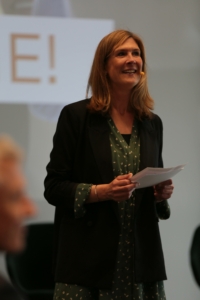
The Editorial Committee Meeting was opened by Sonja Schwetje, Editor-in-Chief at NTV and RTL News and Chair of the Board of Enex. Sonja welcomed the attendees to RTL Deutschland and praised all members for remaining close to their audiences during the Covid-19 pandemic. She also mentioned the ongoing war in Ukraine, in which Enex and its members are doing their best to fight disinformation, uphold independent journalism and maintain media coverage in Ukraine.
“Video material is the lifeblood of Enex”
The meeting continued with a welcome and editorial update from Mark Evans, Head of News at ENEX. Mark covered the latest trends and developments since the last editorial meeting in Belgrade, which took place over two years ago.
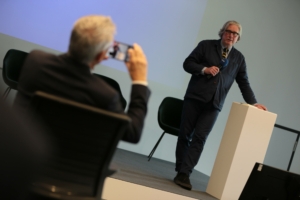
Thanks to Donald Trump, 2019 was a highlight year for ENEX in terms of editorial content, with the upward trend of “hits over time” (when a partner uses content) continuing into 2021. Clear peaks could be seen for the Covid-19 pandemic, with a total of 2,300 stories published in April 2020, followed by further peaks for the US election and Russian invasion. The most popular videos between March 2020 and May 2022 were from hospitals in Bergamo at the beginning of the pandemic, provided by Sky UK, followed by footage of a baby being rescued in Beirut, also provided by Sky UK, and a massive explosion in Beirut, sourced by ENEX.
ENEX provides its members with two types of content: content from other partners, and content which is sourced directly by ENEX news editors. Using the Russian invasion as an example, Mark showed a moving video with footage from Ukraine – showing stories which would have otherwise remained untold. After sourcing and seeking permission to share the video, ENEX verifies the information to check it is true and accurate. The content is then published for all Enex members to use on their news channels.
“Together we will win this war”
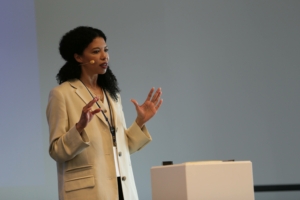
Mark was then joined onstage by Karolina Ashion, a Ukrainian journalist who presents the daily news programme Ukraine Update on behalf of RTL Deutschland. Karolina highlighted the importance of Ukraine Update, which presents news in Ukrainian for the around 8,000 refugees who have fled to Germany. “It was the right decision for RTL Deutschland to make this short but important programme,” said Karolina, adding that it is important for refugees to hear updates from trusted news organisations. “Together we will win this war,” concluded Karolina.
“We are going to cover this war for a long time”
The conversation with Karolina was followed by a panel discussion with Tim Singleton, Head of International News at Sky News, Christian Berger, Reporter and Deputy Head of Politics at RTL News in Germany, and Joachim Weber, Senior Fellow at the University of Bonn. Led by Mark Evans, the three panel guests discussed several topics related to Ukraine, such as fact checking, how to remove reporters from dangerous situations and how to decide which information to broadcast. The guests also took questions from the audience, discussing the future of Ukrainian refugees, how to stay impartial and how to maintain audience interest in the war. All three guests agreed that news channels have a responsibility to find new angles and keep reporting on the war. “We can’t walk away from it editorially,” Tim Singleton said.
The first day was closed by Maike Jungjohann, Head of Business Transformation at RTL News in Germany. Maike discussed RTL’s brand transformation, the merger with Gruner + Jahr and RTL Deutschland’s new office concept. Maike also presented the new newsroom concept for RTL News, which is built on the concept of coming together again and includes open space offices, a coffee bar, lounge area, and space for individual and group work. Finally, all guests were invited on an exclusive tour of the new studios for RTL News.
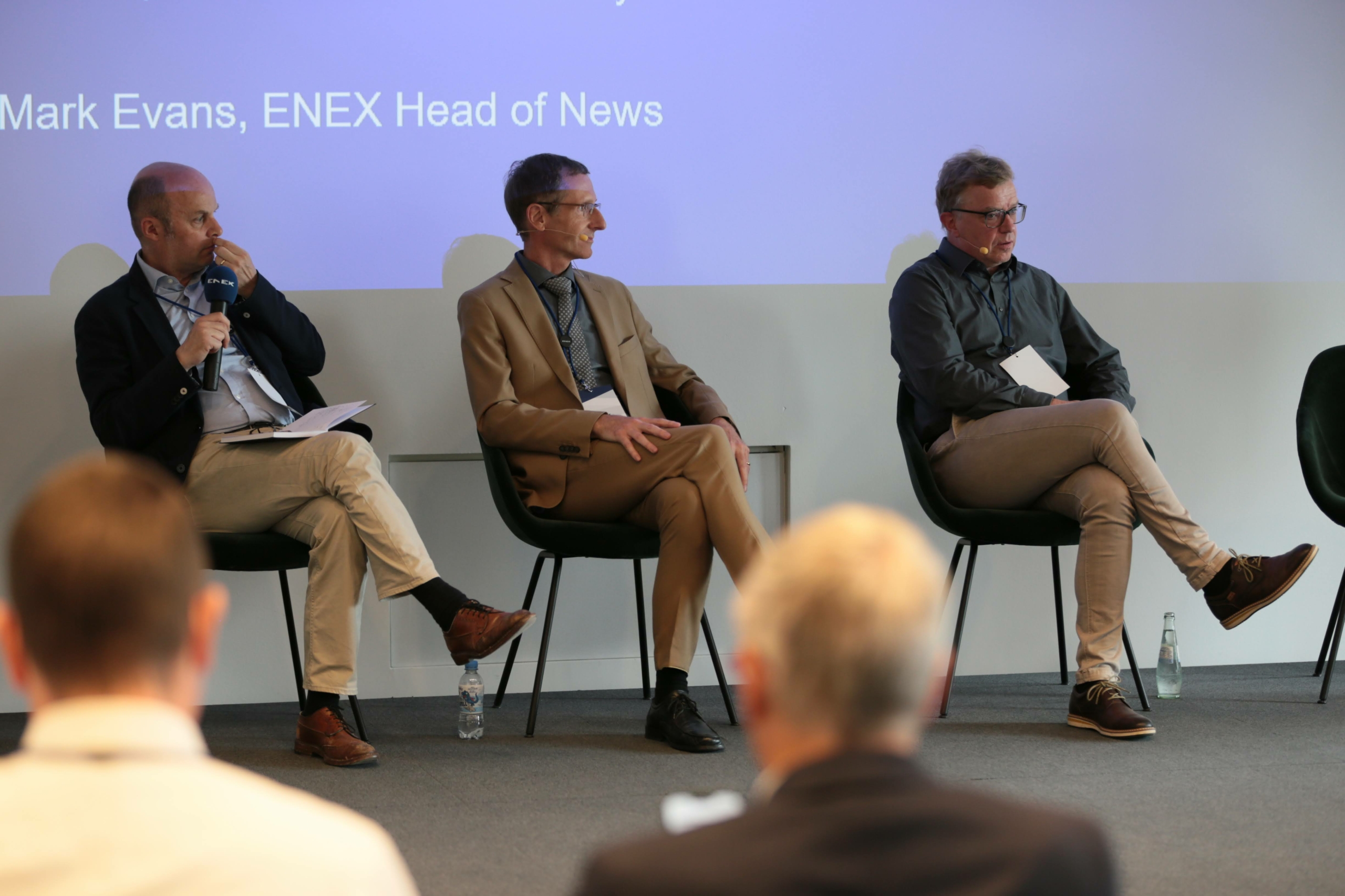
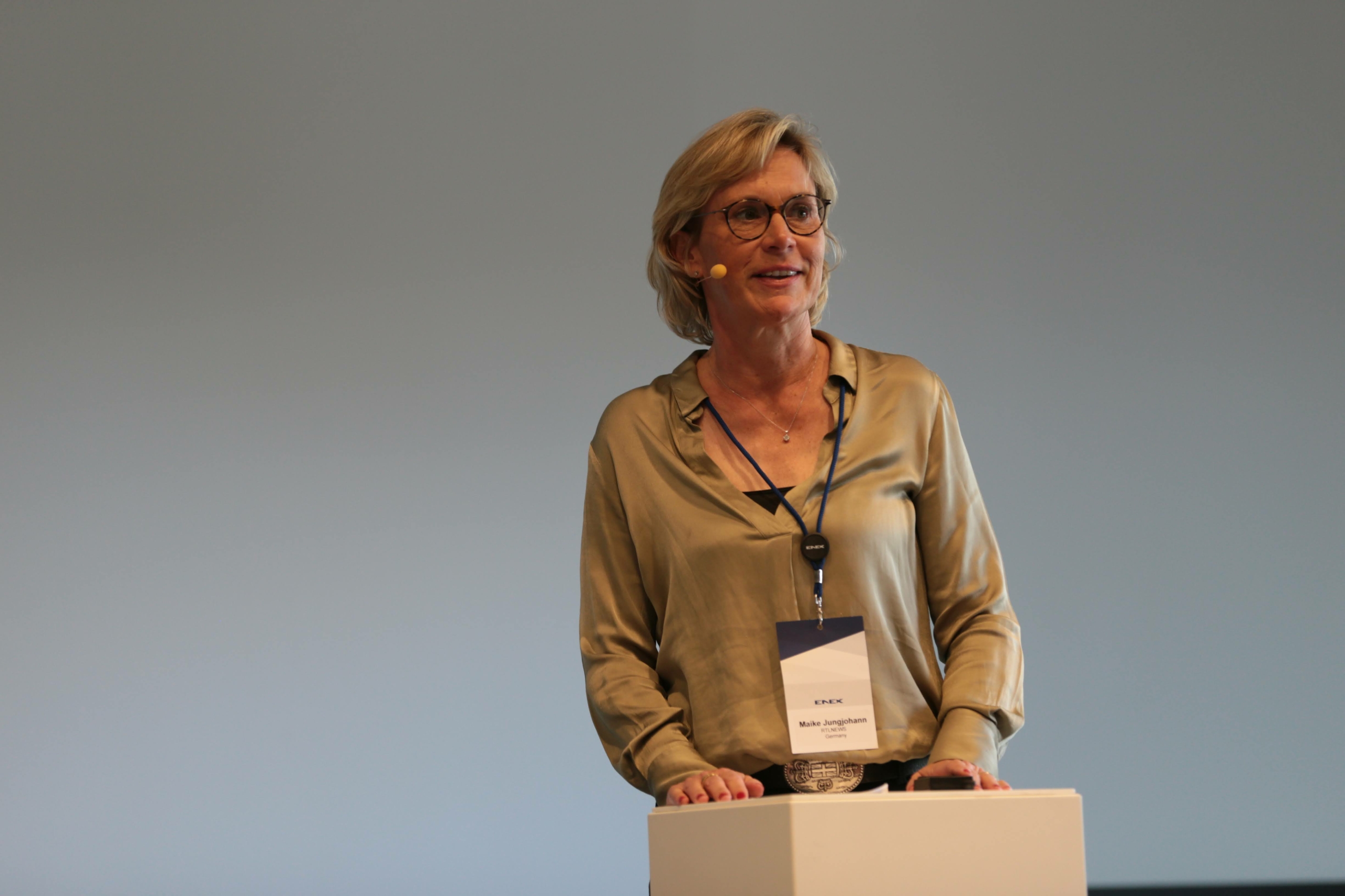
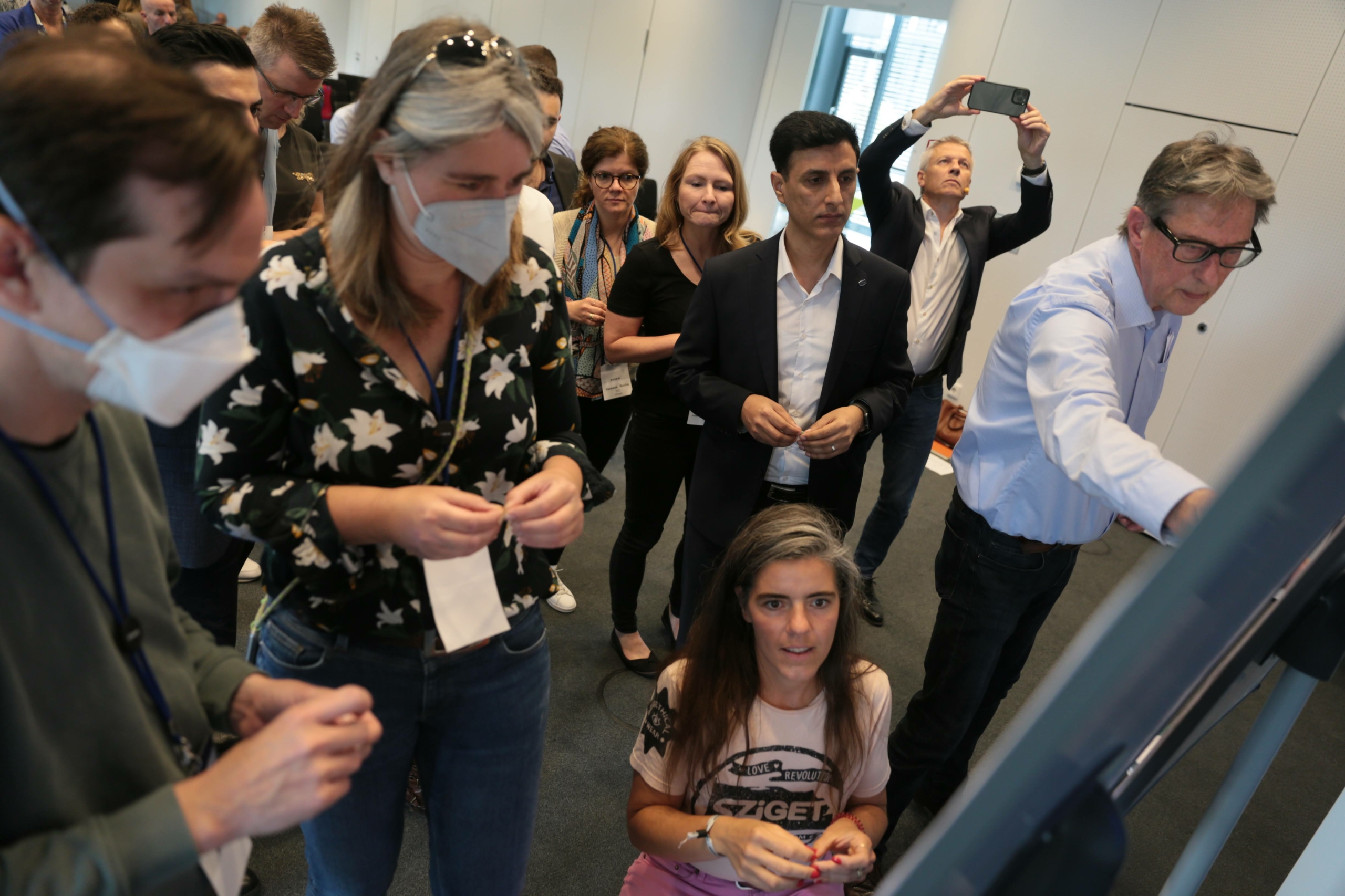
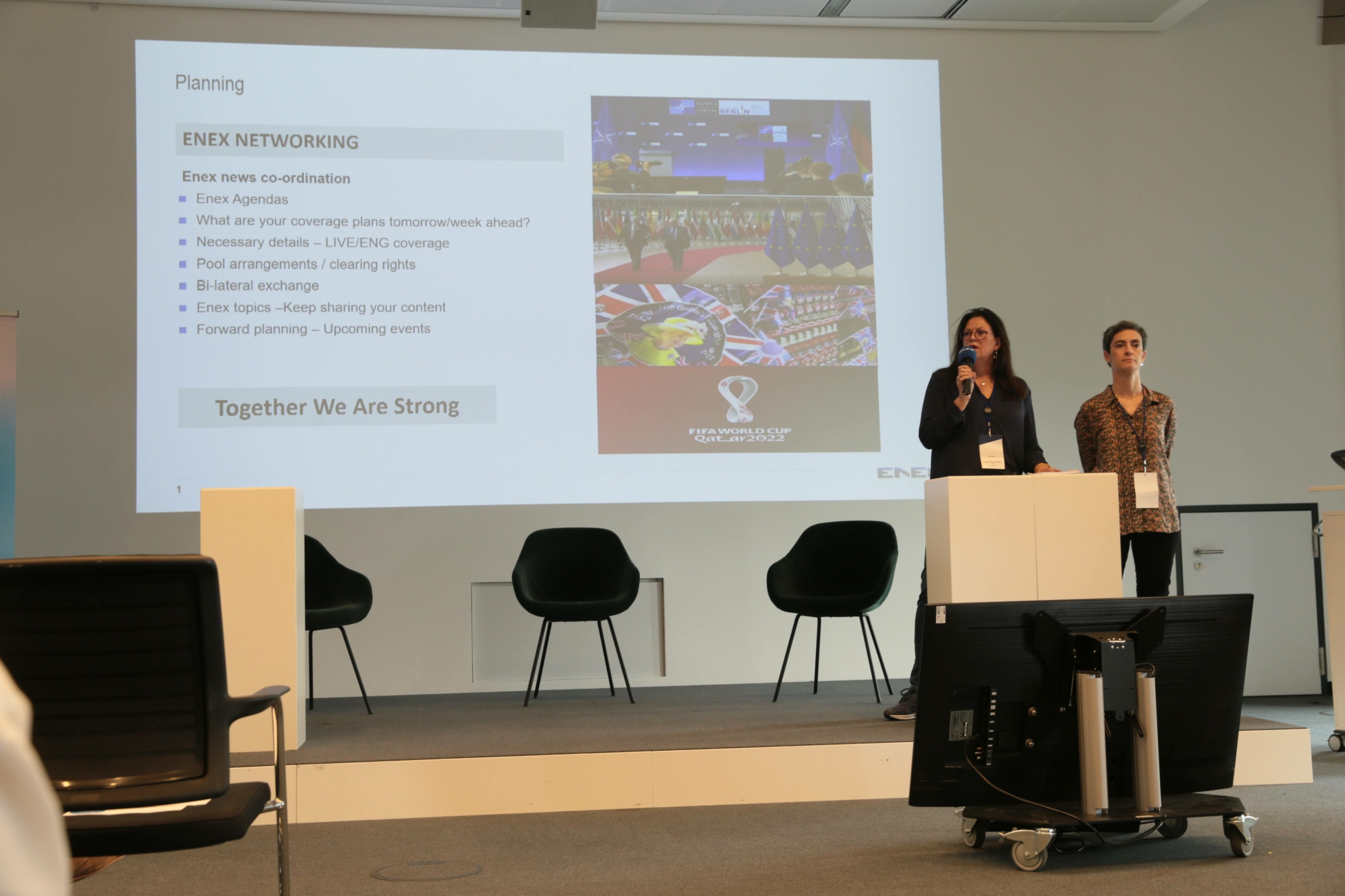
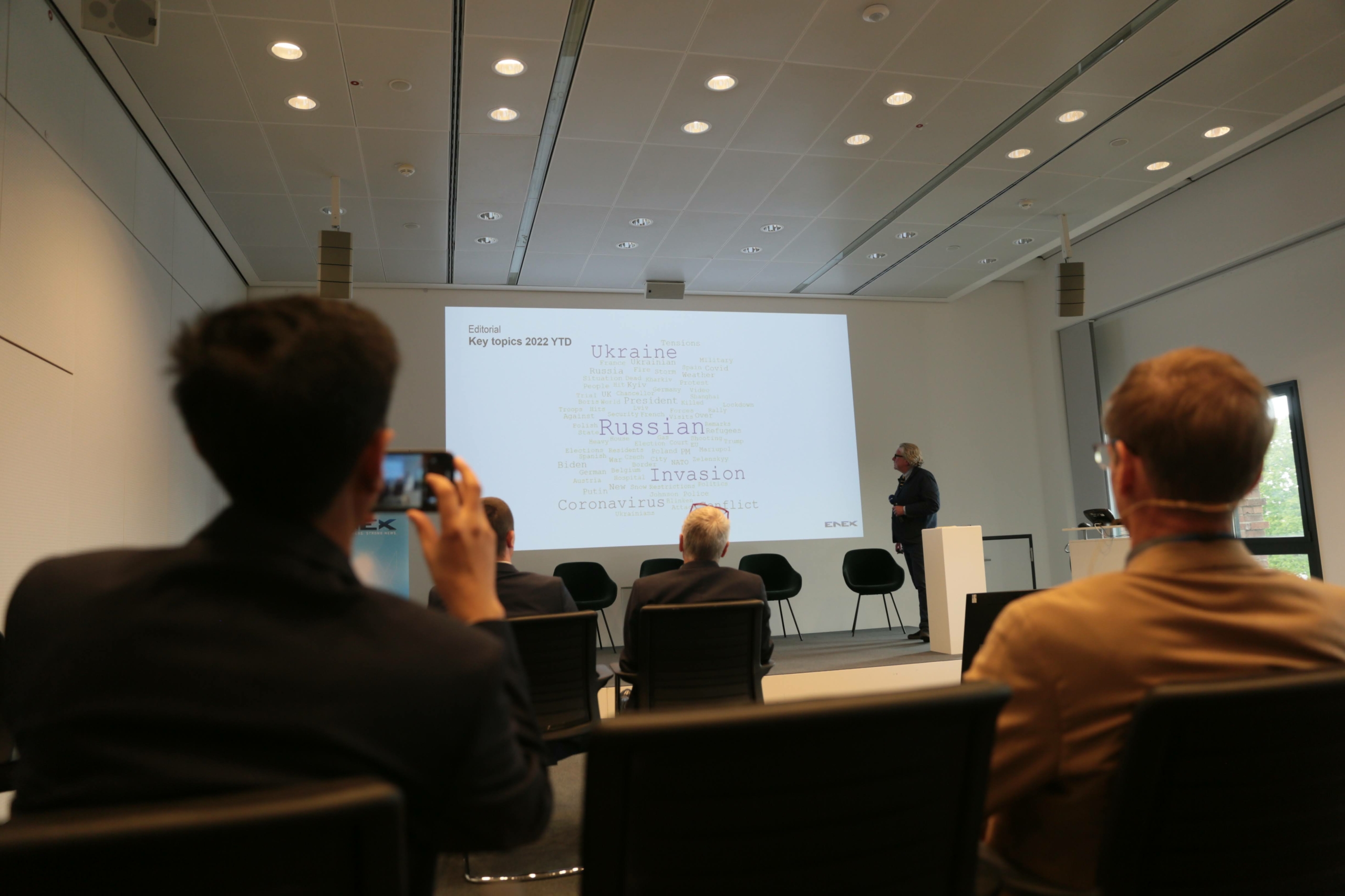
“Coming together again”
Updates, new developments and a communications workshop
The second day kicked off with an ENEX update from Adrian Wells, Managing Director of the organisation. This was followed by a communications workshop hosted by Maike Jungjohann and Stefan Doganay, Head of Content Management at RTL News in Germany, in which all participants had the chance to interact and define their priorities. Next up was a presentation on special events and planning from Nicoletta Pispisa and Nicole Schrambke in which they highlighted the importance of forward planning and clearing rights.
New developments were next on the agenda, hosted by three news editors: Terence Jarosz, Oana Matei and Colm McGlinchey. Terence gave an overview of the most important communication platforms for ENEX (email, WhatsApp, Slack and the website messenger) and the most important translation tools (Google, Deepl, Microsoft and Telegram). Since ENEX works in seven alphabets and 35 languages, reliable translations and transcriptions are essential. The session continued with Oana speaking about copyright best practices and Colm discussing social media content.
“Bring news to people”
The editorial meeting closed with a digital lessons panel chaired by Adrian Wells and with two guests: Wolf-Ulrich Schüler, Editor-in-Chief Verticals at RTL News in Germany and Julian March, Digital Consultant at Positive Momentum. The panel focused on the shift to telling stories on online platforms. As Julian explained, this is a long and evolving change which started in 2006. Today, television reports have a fraction of the reach of digital platforms. The question is: How can journalism be made sustainable throughout this change? Adrian remarked how it is important to stop thinking about different types of media (for example newspaper, TV and online) since everything is cross-media and anyone can be a competitor. Wolf-Ulrich Schüler pointed towards the website rtl.de, which brings together news and streaming for the first time in the worldwide media landscape. “We understand people’s time is limited,” said Wolf-Ulrich.
The discussion moved on to the importance of learning what users want, with Wolf-Ulrich highlighting the knowledge of younger generations as an essential tool. The panel guests discussed how digital news has a high value since it can be used to make information more successful or present data in a consumer-friendly way. As Julian said, “there are some stories you can’t tell in 30 seconds,” meaning it is important to consider engagement and how to keep people on your site for longer – particularly in the age of Instagram, where people are used to short content. A couple of examples were shown, including the Washington Post on TikTok and an article from the BBC which uses graphics and data to tell a compelling story.
When discussing the TikTok example, Wolf-Ulrich noted it is important to bring viewers back to the news site, instead of staying on TikTok. Julian said companies must decide what is most important – reach, relevance or revenue – since this will determine the channel. The panel guests then discussed the format of the future, which Julian believes could be video and text. “Visuals really work, and visuals with test are particularly powerful,” said Julian. When asked for one key takeaway, Wolf-Ulrich said: “Do everything to break into the ecosystem of people are not familiar with news.” It is important to see new platforms as opportunities, not threats, and “bring news to people.” Julian agreed, adding the importance of involving the audience in the development of new products.
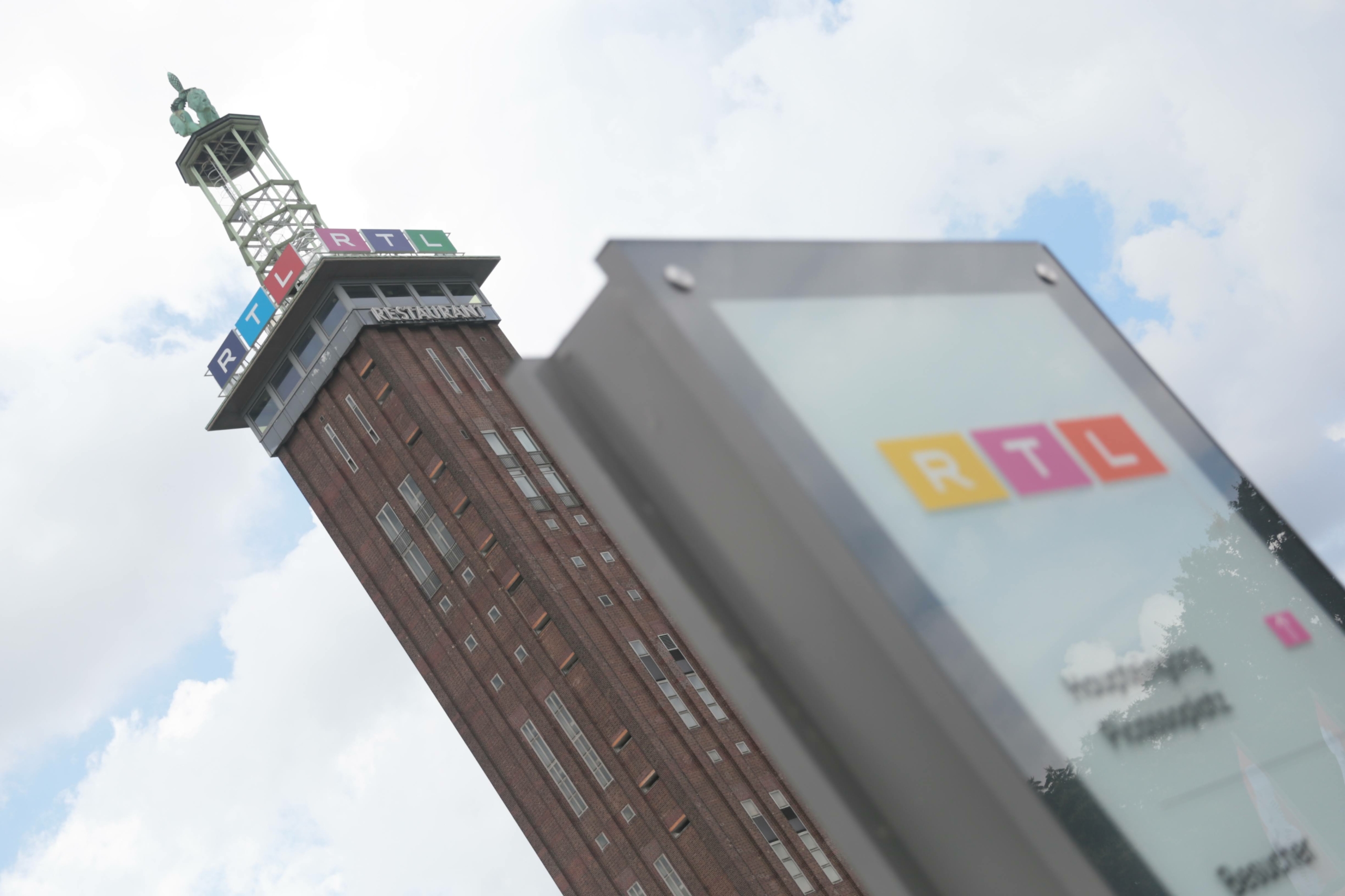
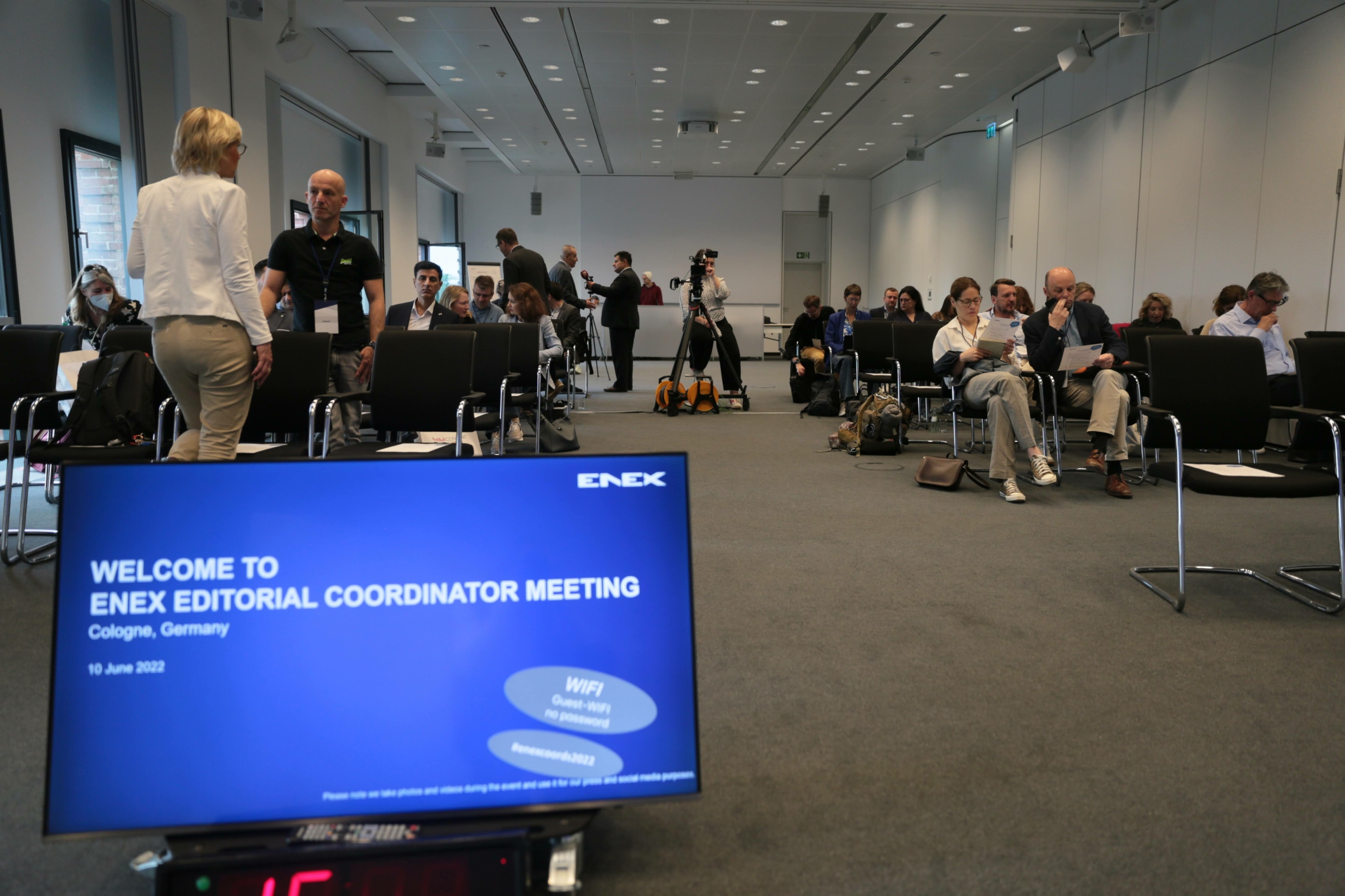
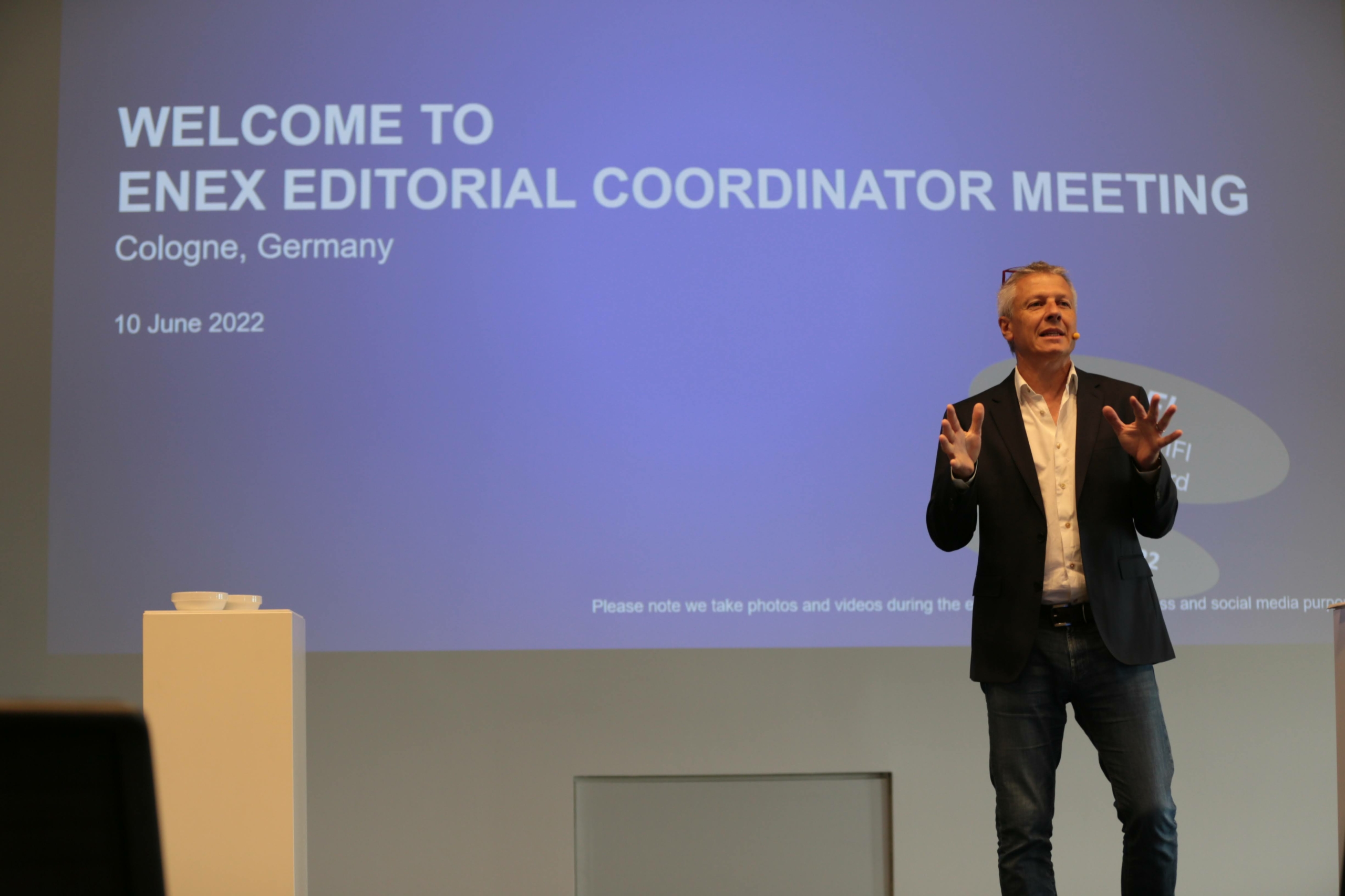
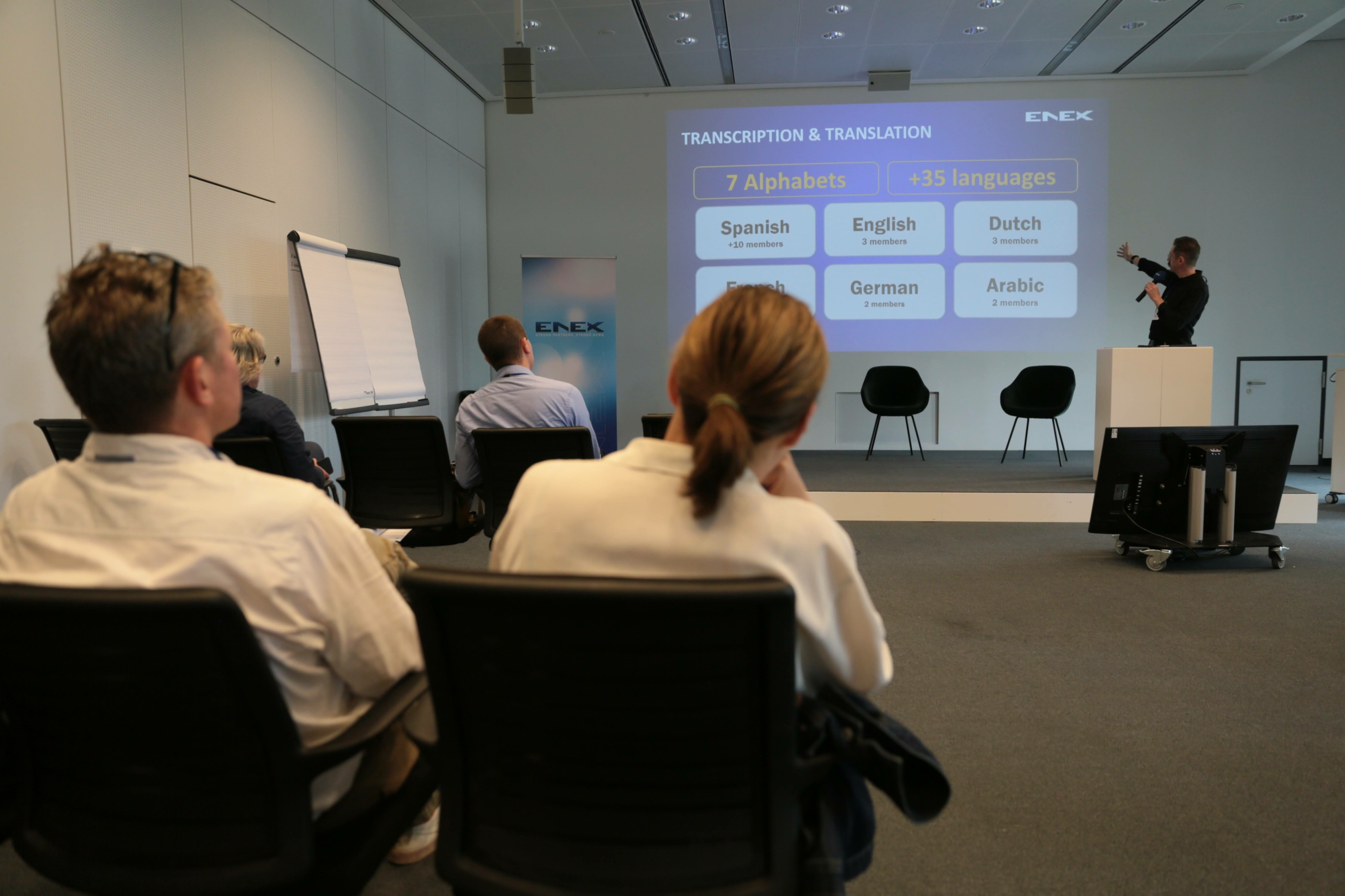
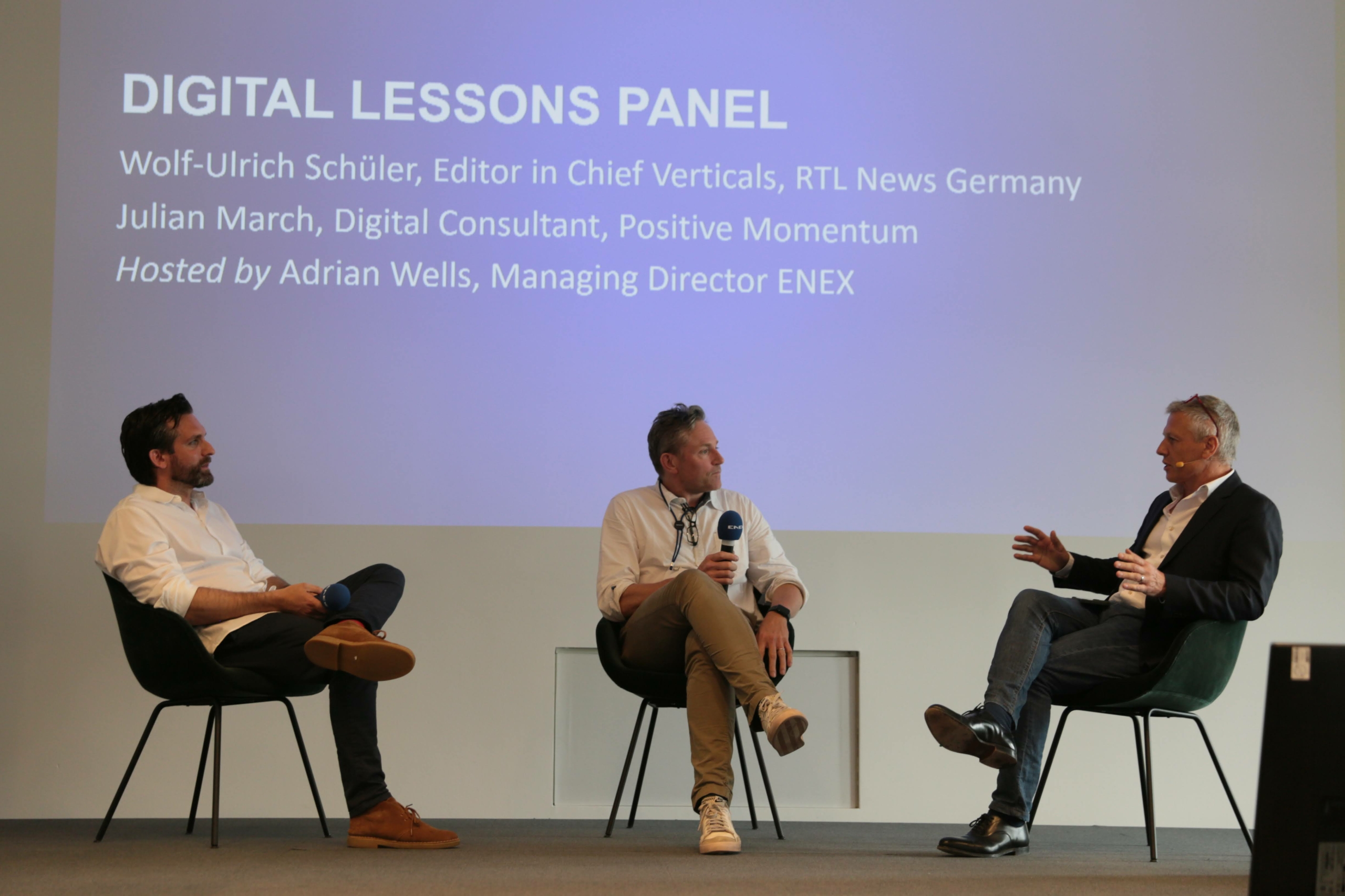
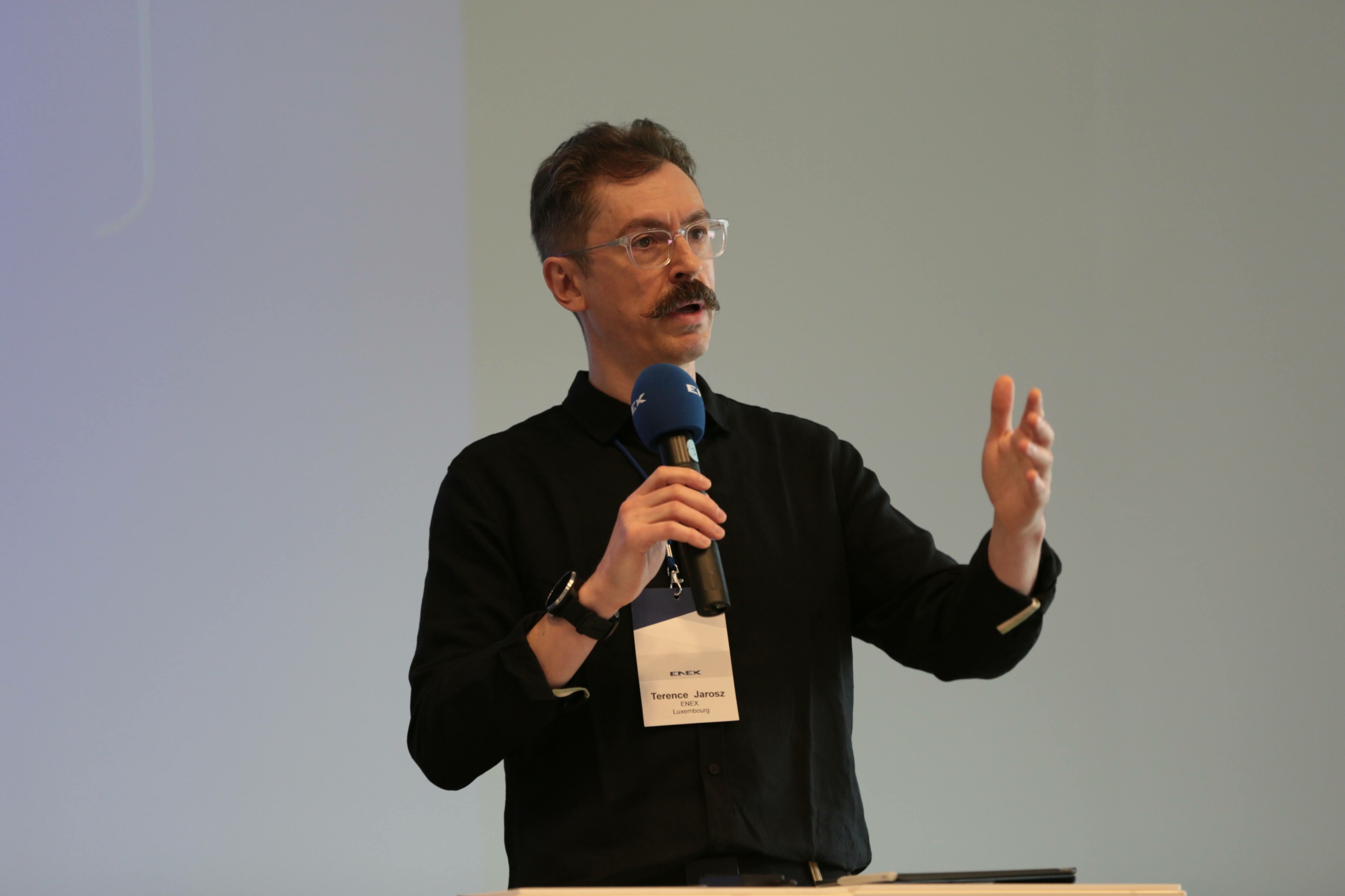




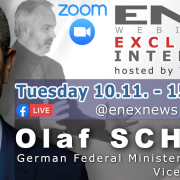
![PHOTO-2022-11-17-09-20-20[12]](https://www.enex.news/wp-content/uploads/2022/11/PHOTO-2022-11-17-09-20-2012-180x180.jpg)

 (c)-2018 European Parliament
(c)-2018 European Parliament
